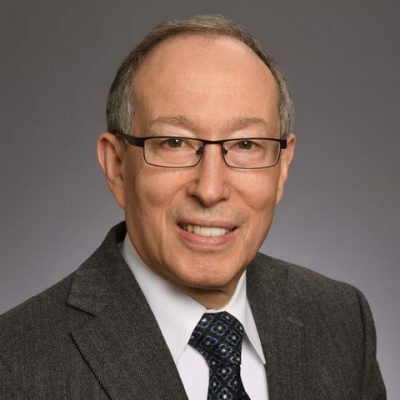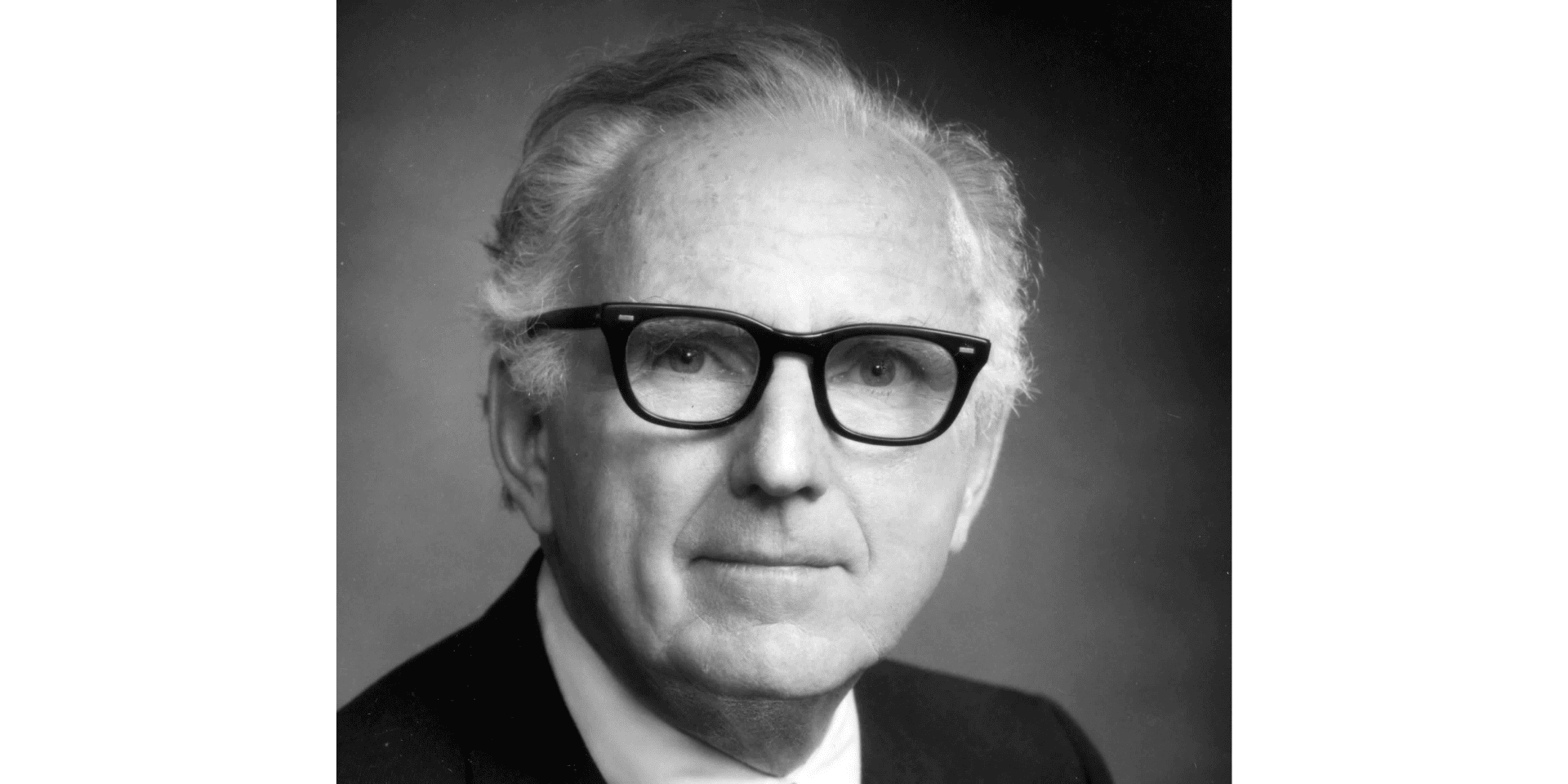In 2007, the National Foundation for Infectious Diseases (NFID) established the John P. Utz Leadership Award as a lasting memorial to the late John P. Utz, MD, a founder of NFID and a champion in the fight against infectious diseases. To honor his memory and years of dedication to the profession and to NFID, the award is presented to individuals who exemplify and support NFID leadership goals, through service to NFID and/or the field of infectious diseases.
Walter A. Orenstein, MD, is the recipient of the 2021 John P. Utz Leadership Award in recognition of his long-standing service to NFID and his leadership in US and global vaccine policy development and implementation. Dr. Orenstein has held multiple NFID leadership roles, including president, and contributed greatly to the growth and visibility of the organization, over more than 15 years of service. As director of the National Immunization Program for the Centers for Disease Control and Prevention (CDC), he oversaw efforts that led to record high immunization coverage associated with record low vaccine-preventable disease incidence, including elimination of indigenous measles. During his leadership, the Advisory Committee on Immunization Practices established consensus immunization schedules for children and adults, supported by major medical and public health organizations. Under his tenure at the Bill & Melinda Gates Foundation, hundreds of millions of dollars were awarded to support immunization programs throughout the world. Now at Emory University, Dr. Orenstein continues his impactful work as a nationally recognized expert on vaccine hesitancy and vaccine policy. In recognition of a distinguished career that exemplifies and supports the NFID goals, NFID is proud to present the 2021 John P. Utz Leadership Award to Walter A. Orenstein, MD.
An Interview with Walt Orenstein
What is your greatest professional accomplishment?
I was the technical lead as director of the National Immunization Program at the Centers for Disease Control and Prevention (CDC) during a Presidential Initiative on Immunization (the Childhood Immunization Initiative), which began in 1993. By 1996, we had met all of the objectives and in doing so, created the Vaccines for Children Program (VFC) and the National Immunization Survey (NIS), and were able to eventually eliminate indigenous measles transmission.
What is the greatest challenge you have faced in your career?
My greatest challenge was to achieve and sustain elimination of indigenous measles in the United States. Measles is one of the most contagious infectious diseases and hence very high immunity levels are needed to interrupt transmission. Elimination required intensified surveillance to detect cases, determining the reason for the case (e.g., vaccine failure versus failure to vaccinate), and adopting solutions to overcome the barriers. This included support for immunization requirements to be enacted and enforced in all states, implementation of the VFC Program to remove cost as a barrier to vaccination, and the addition of a second dose of measles-containing vaccines to the routine schedule.
Describe a specific project or situation that has had a profound impact on you to this day
Probably the greatest impact on my career was my work in the Smallpox Eradication Program. As an Epidemic Intelligence Service (EIS) Officer in 1974, I volunteered to go to India to work on smallpox. At the time, I thought I would go back to the University of California, San Francisco to finish my pediatrics training and go into a career in pediatric nephrology. But seeing this terrible disease, variola major (smallpox), with a 30 percent fatality rate disappear before my eyes due to a vaccine, changed my life. I decided to embark on a career in vaccinology, which included 26 years at CDC, three years at the Bill & Melinda Gates Foundation, and 14 years at Emory University, working in the Emory Vaccine Center.
Who has had the greatest impact on your professional career development and what inspired you to work in the field of infectious diseases?
Many people had a profound impact on my career. The person who most influenced me into pursuing a career in vaccinology was Don Francis, my immediate supervisor when I worked on smallpox eradication in Uttar Pradesh, India. He was a marvelous supervisor and very inspiring. Also, during this time I got to work with Bill Foege, who was overseeing the whole program in India and much of the rest of the world. Bill was so inspiring and could find something positive in some of the most difficult situations. In addition to his public health and scientific expertise, he was the ultimate leader. Finally, I will always be grateful to Alan Hinman. Alan recruited me back to CDC from my pediatric infectious diseases fellowship at Los Angeles County Hospital and was a wonderful and inspiring boss. He was my supervisor for 13 years and I learned so much from him.
And I have to be thankful for all the support I have received from Emory University, including from Rafi Ahmed, director of the Emory Vaccine Center; David Stephens, chair of Medicine at Emory University, and Monica Farley, director of the Infectious Diseases Division within the Department of Medicine at Emory. There are many others who played major roles in my career, but these individuals probably played the greatest roles.
Who do you most admire, and why?
This is a very tough question. I would have to say the person I most admire is my wife of 44 years, Diane Orenstein. She has supported me throughout my career, working super hard to take care of the responsibilities I should have had. And this allowed me to focus my efforts on vaccinology. To this day, I feel great discussing issues regarding my career with her and getting her feedback.
Recognizing the challenges that we face, both as a nation and as a global community, what are the greatest threats and opportunities for the infectious disease profession?
The greatest threat is what we are experiencing now, the COVID-19 pandemic. While at CDC, we had multiple threats that a major severe pandemic would emerge. Fortunately, they did not happen while I was at CDC, but we need to learn important lessons from the COVID-19 pandemic to avoid future disasters. This includes assuring we have a trained workforce to address such pandemics, sufficient resources to implement pandemic mitigation measures, and adequate surveillance and research capacity to detect potential emerging pathogens early and take steps to prevent them from evolving into pandemic agents.
We need to build the political will to assure this all gets done. Prevention can be hard to sell. When prevention happens, nothing happens. Thus, people may not realize the benefits. This is very different from therapy when the person suffering clearly can see the benefits of effective treatment.
It is particularly important to build an infrastructure that can quickly adapt, should a pandemic emerge, to mitigate its burden. For example, our program to vaccinate adults with recommended vaccines is markedly inferior to our childhood vaccination program. In my opinion, if we had a stronger adult immunization infrastructure, we would have performed better in rolling out the COVID-19 vaccines.
What are the greatest changes you have seen in the profession since you began your career?
There have been many changes. First, is the development of better technologies, such as new approaches to developing vaccines (e.g., mRNA vaccines, vector-borne vaccines, polysaccharide-protein conjugate vaccines). Second, is the revolution in information technology with the internet, compact mobile computers, cellphones, and electronic records, which help us detect infectious disease problems, determine the best strategies to address them, and ultimately track implementation so actions can be taken if strategies are not implemented well. Third, is the recognition of the need for implementation science research if we are to achieve major reductions in infectious diseases. The development of new vaccines and drugs is important, but if these tools are not properly used and adopted for the people for whom they are recommended, our impact is limited.
Knowing what you know now, what, if anything, would you do differently in your professional life? Any regrets?
Probably nothing. I have had an exciting career. And I never thought about a career in vaccinology until I went to CDC in 1974, but fortunately, it all turned out well!
What most keeps you up at night?
I am a vaccinologist. What is most frustrating is the problem of vaccine hesitancy, which in 2019 was listed as one of the top 10 global health threats. We have seen it in the US, and it has been particularly highlighted by the substantial resistance to get vaccinated against COVID-19. A vaccine dose that stays in the vial is 0 percent effective, regardless of what the clinical trial showed. Overcoming vaccine hesitancy is not easy. More research on implementation and communication science is needed to help in combating vaccine hesitancy.
What advice do you have for the next generation of infectious disease professionals?
It is critical to provide outstanding clinical services to diagnose and treat infectious diseases. But it is also critical to prevent infectious diseases and their complications. For those in training, consider applying to become an EIS officer at CDC. Public health needs highly qualified people to get involved in preventing infectious diseases on an ongoing basis.
Is there anything else you would like to share?
My favorite quote is: “Vaccines don’t save lives. Vaccinations save lives.” I also like to point out that none of us will ever achieve physical immortality. But we can work to avert deaths among others in our population, so they can go on to help society and impact future generations. Thus, through our work we should try to impact and achieve societal immortality.
It is also important to remember that children may not share their toys, but they are always happy to share their germs.


